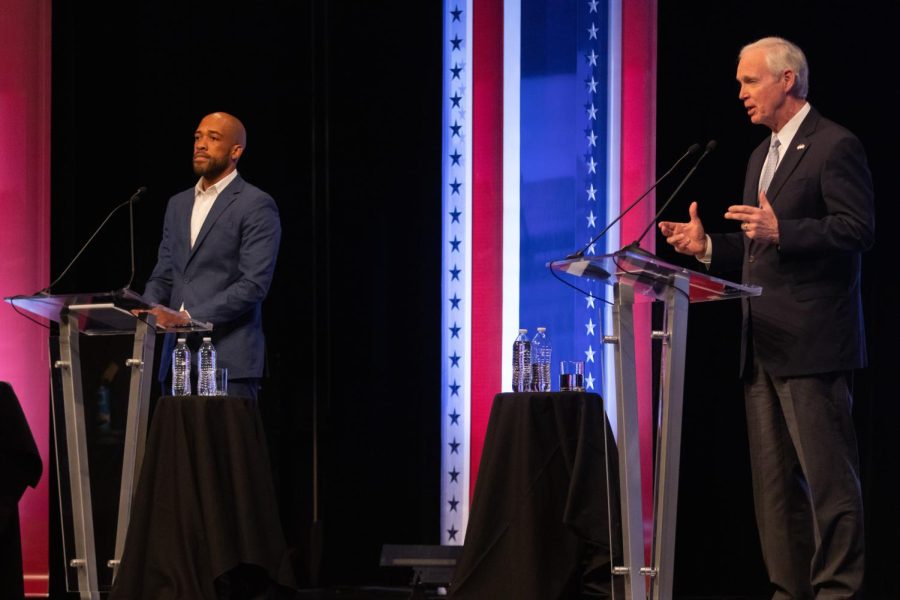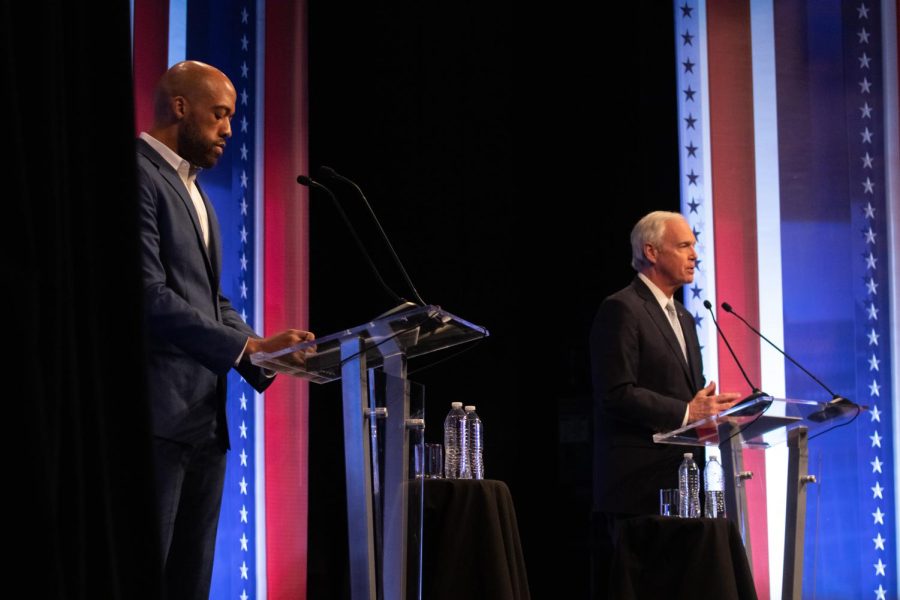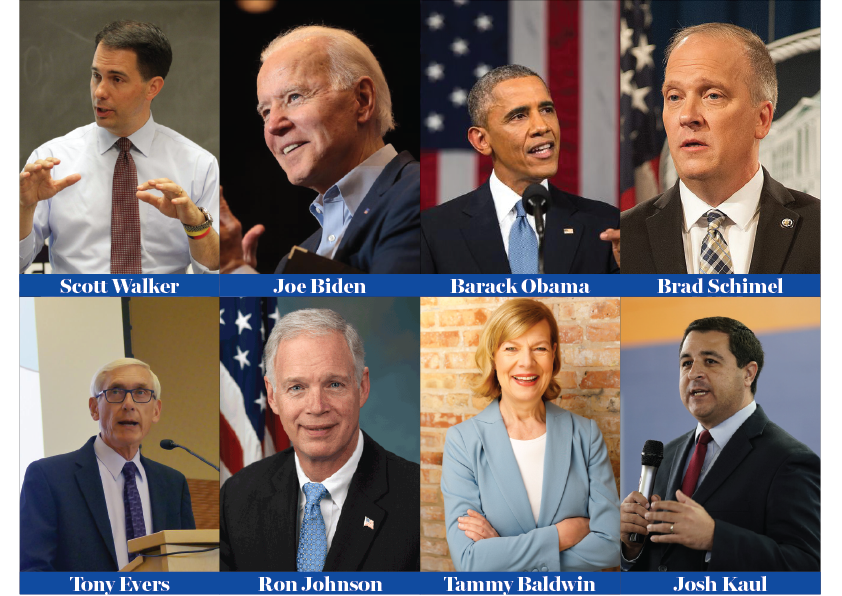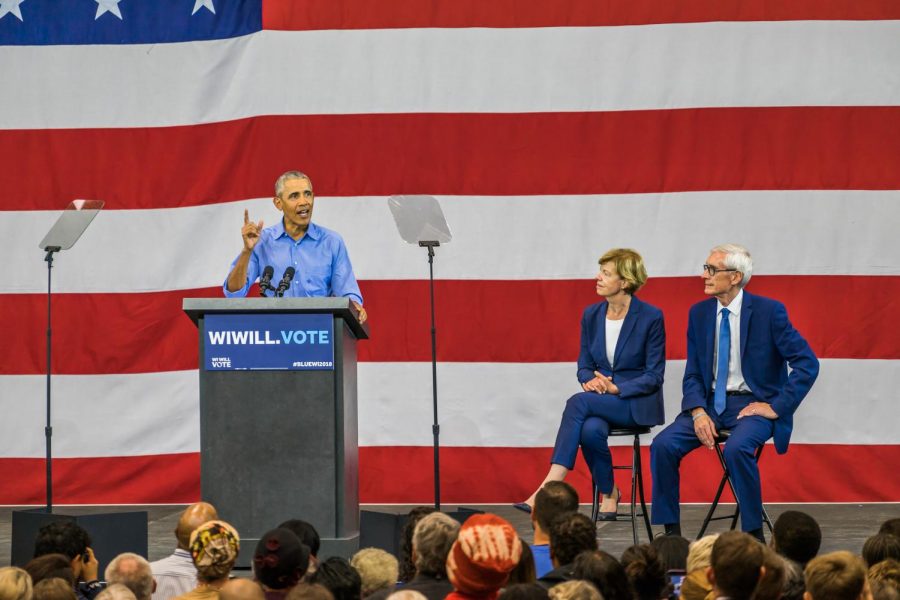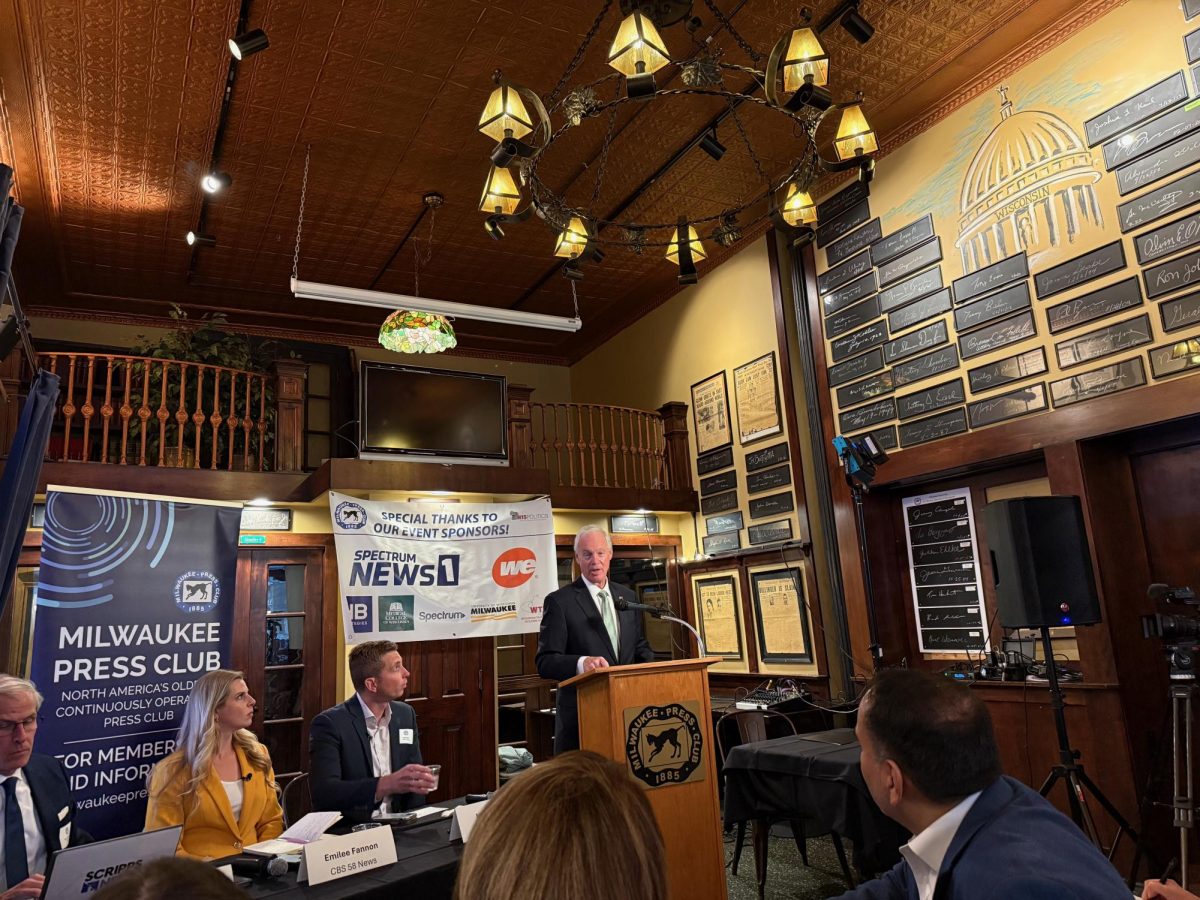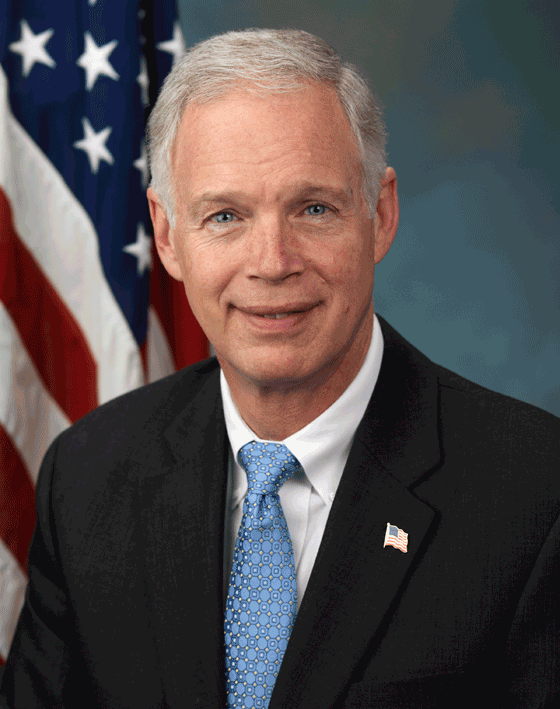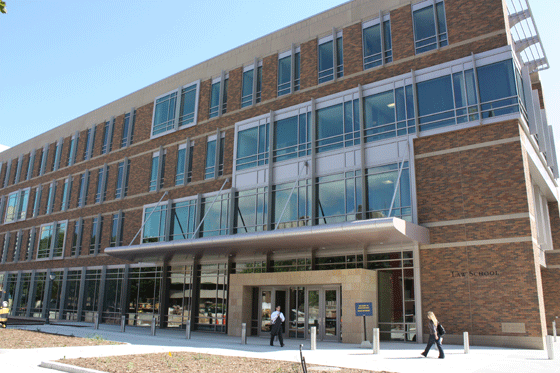Republican Senator Ron Johnson and Democratic Lt. Governor Mandela Barnes held their last debate before the senate election Thursday, Oct. 13 at Marquette University’s Varsity Theater.
Prior to the debate, people were outside the theater holding a demonstration advocating for Barnes where a band played, pins were given out and people were dancing in the street.
Calena Roberts, one of the demonstrators, said she decided to back Barnes’ campaign because she said she is tired of Ron Johnson’s “foolishness.”
Roberts said she was also unhappy about the way Ron Johnson handled the Jan. 6 insurrection when he described those who participated as “tourists.”
“Had it been Black Lives Matter, he would have been concerned. That’s offensive, hurt my feelings because had it been any type of protest where a bunch of Black people [were] scaling the walls and tearing down the building, you know, just invading the building, the national guard — everybody would’ve been out on us, and we know that,” Roberts said.
Among other topics such as the Jan 6th insurrection, the debate was a consistent pingpong battle of insults, postering and fingers pointed at the opposite opponent.
A Marquette Law School Poll revealed that the top issues for voters in Wisconsin are currently aimed towards inflation, public schools, gun violence, abortion policy and crime.
A major topic at the debate was inflation. Johnson was asked the first question, focusing on what Congress can do to control rising costs and what his priority will be in the Senate for what Congress can do.
“We have to understand what caused these … high inflation rates. It’s out of control deficit spending. I voted against most of it, but unfortunately, President Biden when he came into office put forward another 1.9 trillion dollar COVID-19 relief package when we had a trillion and a quarter left unspent from the previous COVID-19 relief package,” Johnson said.
The solution, Johnson said, is to ultimately stop deficit spending and stop growing the United States’ debt. Johnson said Barnes supports “massive deficit spending.”
Barnes was asked the same topic and said that he understands what it’s like to struggle to pay bills. Barnes said he knows firsthand that they need to lower costs for working families by giving give the middle class a tax cut and stopping tax reductions to the wealthy upper class.
Barnes argued that Johnson’s past actions as a senator did not act in the best interest of Wisconsin taxpayers.
“The 2017 tax plan that senator Johnson was a no-vote for at first until he orchestrated 215 million dollars in tax deductions to his biggest donors, benefiting himself personally in his own company while leaving the working class people behind. We need to make sure working class people get to keep more of what they earned,” Barnes said.
Johnson emphasized the importance of keeping violent criminals in jail and supporting law enforcement.
Johnson also said that we should keep qualified immunity for police officers when asked about police reform while Barnes said he supports getting rid of qualified immunity.
Qualified immunity is a judicial doctrine that protects state actors from liability covering any misconduct and even when breaking the law.
Barnes said we need to restore trust between law enforcement and the community which will lead to less crime.
“When we reduce poverty, we reduce crime. When we increase support for our schools, we reduce crime. When we create good paying jobs in our communities, we reduce crime,” Barnes said.
The topic of abortion and family planning was then brought up, Barnes was asked at what point should life be protected and what exceptions he would support in terms of abortion.
Barnes said we should be supporting the health and life of the mother and said we should go back to allowing legal abortions nationwide. He also said that the decision should be left up to the woman and her doctor.
“I respect everyone’s personal beliefs, I just don’t think that everyone’s personal beliefs should be the law for everyone,” Barnes said.
Johnson was asked the same question and said this is a “profound moral issue” and said the best way to solve the issue is to have a one-time single issue referendum to decide when society has a responsibility to protect life.
The moderators questioned how Johnson will be able to have this referendum to which Johnson responded that he would encourage the governor to convince them to hold a single-issue, one time referendum.
“I’m trying to develop a method where we can come together, decide this once and for all … and have we the people decide,” Johnson said.
After the debate, there was a press conference held for the media. Neither candidate showed up to the conference, but Johnson’s spokesperson Ben Voelkel attended in place of him. Barnes did not have a representative at the press conference.
“You saw the Lt. Governor repeatedly dodge questions, dodge opportunities to clarify his positions or to run away from his positions- particularly on the issue of abortion. It’s clear that he continues to support abortions, killing a baby up until the moment of birth. Like the senator mentioned today that’s about as extreme of a position as you can possibly get,” Voelkel said.
Nancy Flaherty contributed to this story
This story was written by Julia Abuzzahab. She can be reached at julianna.abuzzahab@marquette.edu


